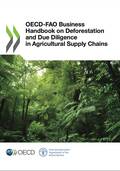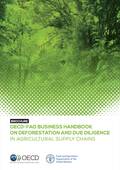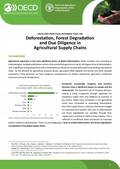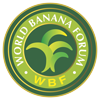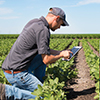Global agricultural supply chains, deforestation and responsible sourcing
An estimated one-third of agri-food exports are traded within global supply chains (FAO, 2022). While this global trade supports economic growth and development, meeting and facilitating global demand for commodities is also impacting our forests, which are home to an estimated two-thirds of the world’s biodiversity. Since 1990, an estimated 420 million hectares of forests have been lost through deforestation (FAO, 2020). Nearly 90% of tropical deforestation has taken place as a result of agricultural expansion (FAO, 2021).
Up to 39% of tropical deforestation is estimated to place as a result of international trade with commodities that are sold in high income markets (Godar et al, 2019). While deforestation takes place upstream in supply chains, businesses and governments around the world all play a critical role in curbing deforestation.
FAO’s work on Responsible Business Conduct (RBC) in Agriculture, which includes the uptake of the OECD-FAO Guidance for Responsible Agricultural Supply Chains, and the OECD-FAO Business Handbook on Deforestation and Due Diligence in Agricultural Supply Chains is rooted in working with governments, businesses and others in trade-related developmental impacts. On agricultural supply chains and deforestation, FAO’s Market and Trade Division works in cooperation with its Forestry Division, leveraging expertise on global trade, business and supply chains with expertise on sustainable forest management.
Featured Resources
-
Published: July 2023
Available in: French | Spanish | Indonesian
-
Halting deforestation from agricultural value chains: the role of governments
Published: September 2022
-
OECD-FAO Business Handbook on Deforestation and Due Diligence in Agricultural Supply Chains
Published: December 2021


